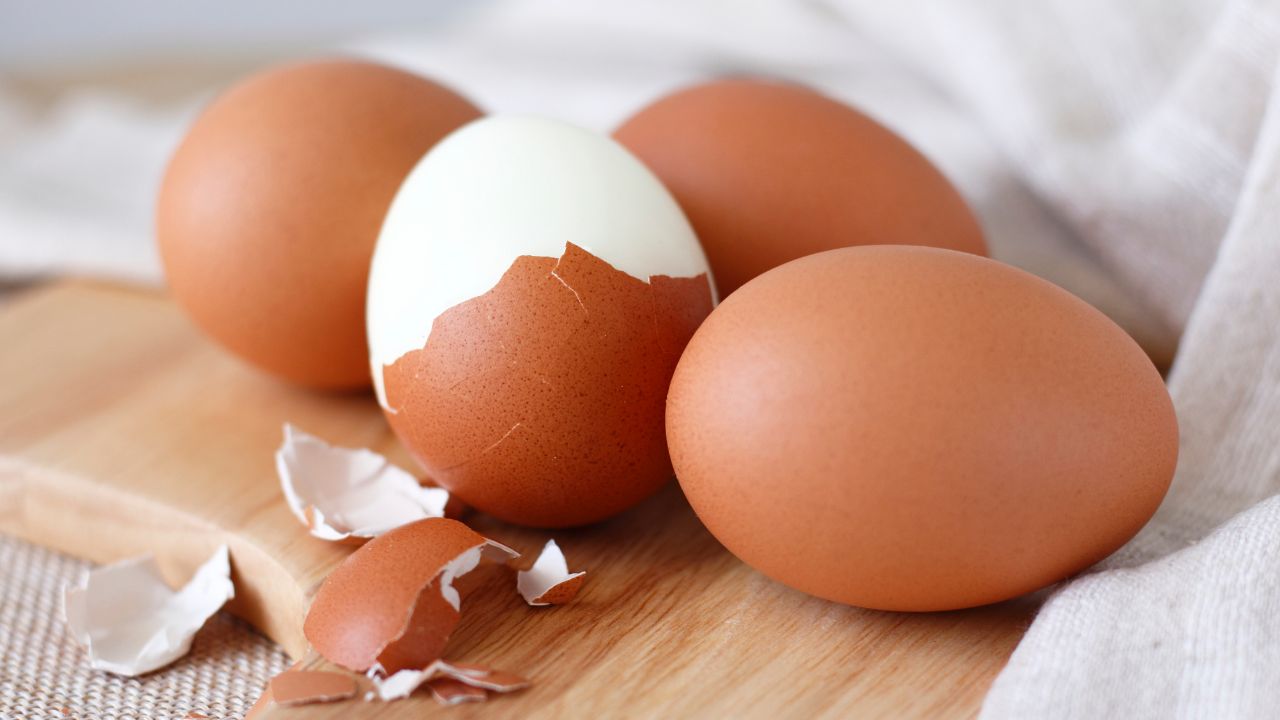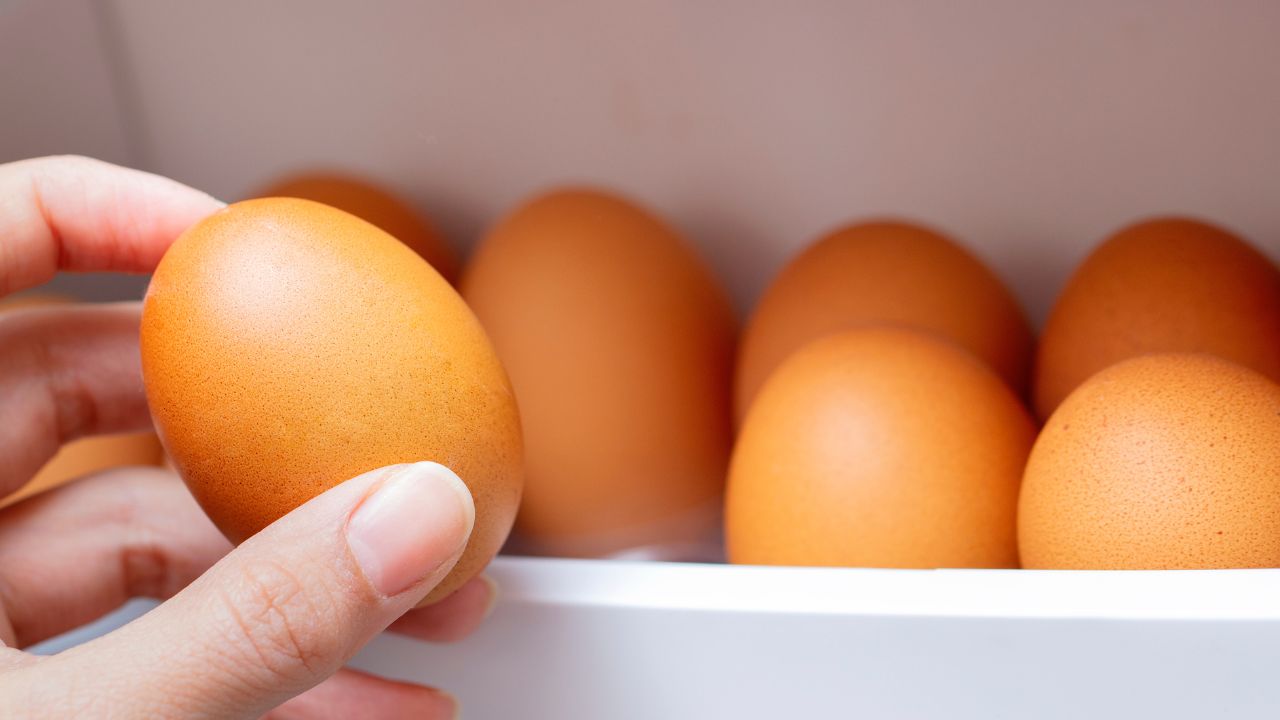Even though they are delicious year-round, hard-boiled eggs become more prevalent in households during spring.
When Easter Sunday is around the corner, the traditional egg-painting frenzy begins, and many people start boiling large batches of eggs to decorate and eventually snack on.
Before you start devouring your Easter table decorations, you might want to refresh your memory on how long hard-boiled eggs last both when kept in the fridge or not.
You might be surprised to discover that hard-boiled eggs have a considerably shorter shelf life than a pack of raw eggs.
So, before you make your Easter eggs or even your deviled eggs for the weekend’s dinner table with friends, you should be aware of how long hard-boiled eggs will last and what the best way to keep them fresh is.

How Long Do Fresh Eggs Last?
The simple answer is this: the actual time frame for fresh eggs seems to be between 3-5 weeks (expiration date notwithstanding).
You could always use the floating egg test to determine the quality of an egg prior to actually boiling it.
How Long Do Hard-Boiled Eggs Last?
Hard-boiled eggs have a shelf life of approximately ten days.
A couple of tips and tricks we’ll give you can help these little protein-packed superstars last longer, so keep on reading below to find out more.
What’s The Best Way Of Storing Hard-Boiled Eggs?
To begin with, it’s important to mention that hard-boiled eggs, like fresh eggs, are best kept in the fridge.
Therefore, try to store your hard-boiled eggs in their shells and in the fridge.
The shells keep the eggs fresh for longer and prevent them from accumulating the odors of other food that’s kept in the fridge.
In case you have peeled the eggs and want to keep them in the fridge, it’s best to keep them in containers or zip-loc plastic bags.
This is particularly true and applicable when you want to store some leftover deviled eggs.
Moreover, hard-boiled eggs can also be kept in their original cartons in which they were purchased given that none of them was broken in it.
When it comes to their temperature, you should allow the hard-boiled eggs to cool to room temperature once boiled – that would be probably around 10-15 minutes later – before placing them in the refrigerator.
When you place too many boiled eggs in the refrigerator at once while they’re still hot, you are making it impossible for the cooling air to efficiently move around them.
This can increase the temperature and can affect the products that are stored nearby in the refrigerator, even spoil them.
How Long Can You Keep Hard-Boiled Eggs In The Fridge?

According to The American Egg Board, shelled hard-boiled eggs can be safely stored in a refrigerator with a temperature of no more than 40°F) for about seven days.
However, eggs whose shells have been removed must be eaten within a day.
The United States Department of Agriculture, which oversees food safety, falls in line.
If you visit both these organizations’ websites, however, you could see that none of them is advising people to freeze hard-boiled eggs in their shells.
While it will not cause illness, it will destroy the egg.
Can Hard-Boiled Eggs Be Stored In Vinegar?
When you are left with way too many hard-boiled eggs to eat within seven days (it happens to most of us after Easter Sunday) and can’t bear the thought of throwing them away, there is a smart and tasty alternative: turn them into pickled eggs!
Peeled hard-boiled eggs can be quickly placed in a container filled with vinegar and stored in the fridge for up to four months. They are an excellent treat!
All you have to do is store the hard-boiled eggs in heat-proof airtight containers or jars and season the eggs with dill, garlic, or both if desired.
Then add the white vinegar to a pot or pan to boil it together with any other pickling herbs and spices you prefer, like allspice, a clove or two, black pepper (sea also ‘White Pepper VS Black Pepper‘), salt, or even a sweetener.
When the vinegar starts to boil, pour it on the eggs, close the container/jar, let it cool to room temperature and then put it in the fridge.
What Is The Shelf Life Of Hard-Boiled Eggs At Room Temperature?
According to the United States Department of Agriculture, you must not leave uncooked food within what is known as “the danger zone”—that is temperatures ranging from 40 to 140°F—for more than 2 hours.
This is because bad bacteria multiply the fastest at those temperatures.
In reality, if the temperature is above 90°F for example, at an outdoor barbecue or July picnic), refrigerated items, when left out of the fridge, must be thrown away an hour later.
What Is The Best Way To Tell If You Should No Longer Eat A Hard-Boiled Egg?
A bad egg can make you feel ill, therefore it’s certainly best to be cautious.
When the egg is still inside its shell try to check whether it appears powdery, gooey, or somehow unusual.
Start by removing the shell when you’ve done that first check, as a bad egg will immediately release a strong odor, which is a dead giveaway.
Of course, many hard-boiled eggs emit a foul-smelling odor due to a chemical reaction that happens when they are overcooked, but a bad egg has a very particular undesirable odor, so you will get it right away.
Can Hard-Boiled Eggs Be Consumed After Ten Days?
The answer is yes, but you will have to employ your best judgment to determine whether the eggs are indeed still suitable for consumption.
As we’ve already mentioned, this procedure entails inspecting the shell and determining if the egg emits an unpleasant smell.
If the egg seems to have no objectionable characteristics, it is probably safe to eat.
However, the risk is unlikely to be worth it, so it’s best to buy some fresh eggs and cook them rather than trying your luck with some old ones.
How Can You Use Up Any Leftover Hard-Boiled Eggs?
Hard-boiled eggs are the healthiest of snacks and can become a great addition to any meal.
If you are looking to use up some leftover hard-boiled eggs, you can make an egg salad sandwich or turn those Easter eggs into deviled ones. They will be devilishly good!
The Bottom Line
It’s best to consume your hard-boiled eggs within ten days after boiling them, given that you have stored them in the fridge during that time too.
And, if you’ve kept them in their shells, you’ve probably saved them from smelling a bit like the turkey or dill you’ve stored nearby.
- 15 Traditional Greek Breads - July 31, 2023
- 30 Delicious And Gluten-Free Cookie Recipes - July 29, 2023
- 30 Of The Best European Desserts - July 29, 2023
